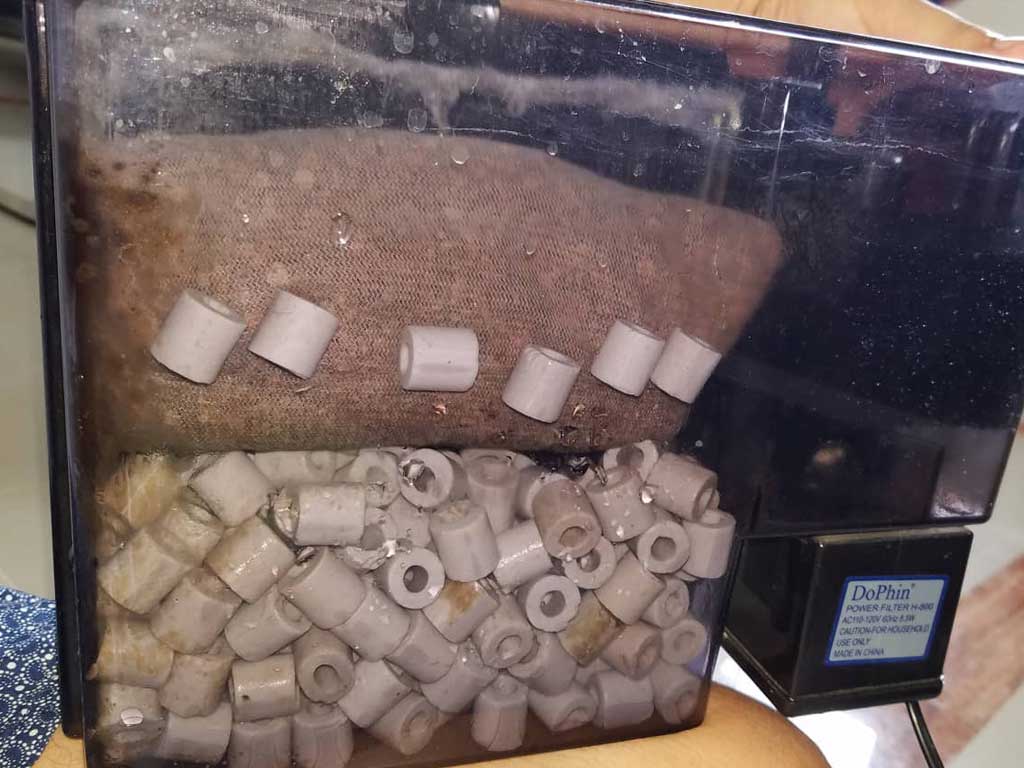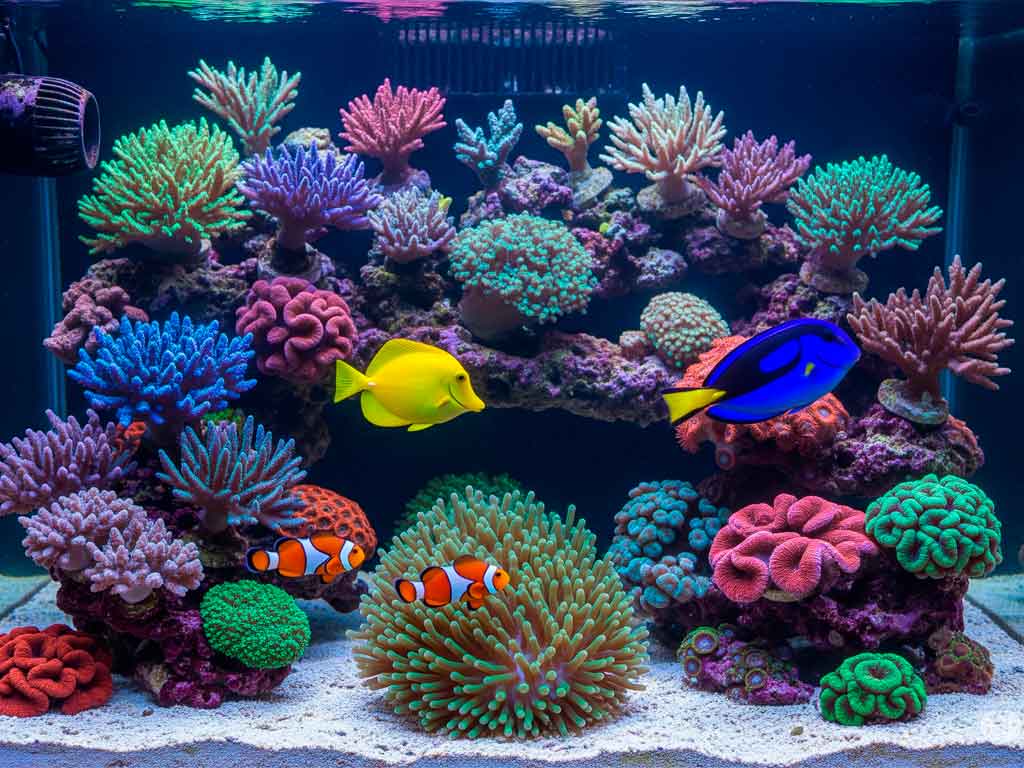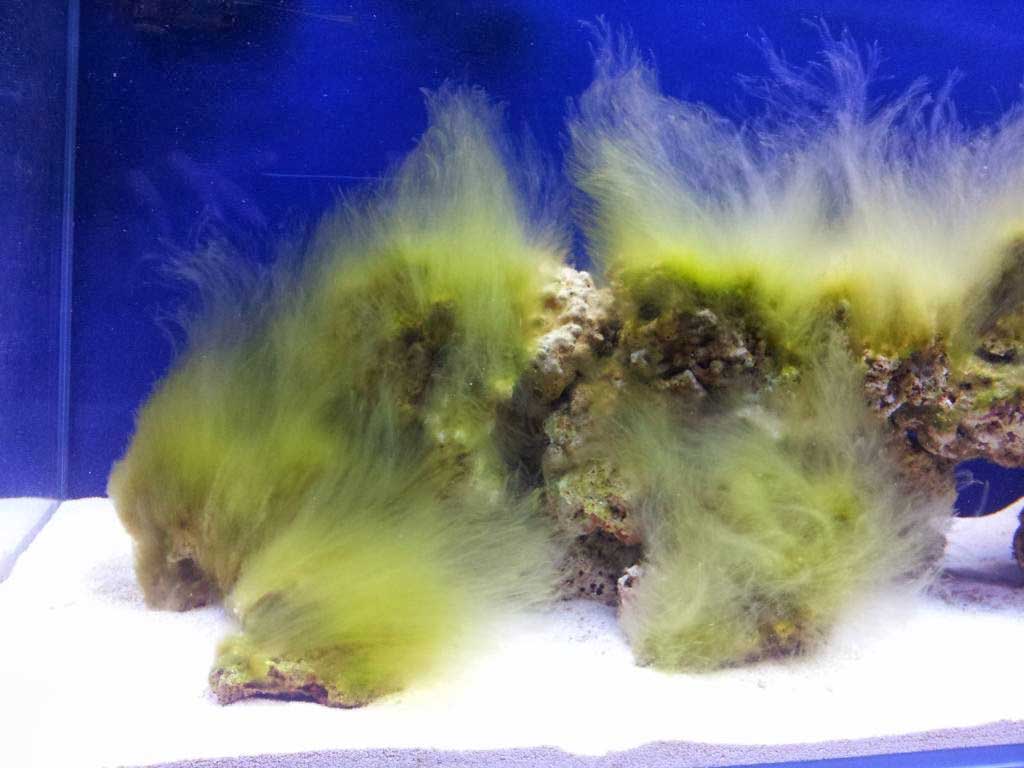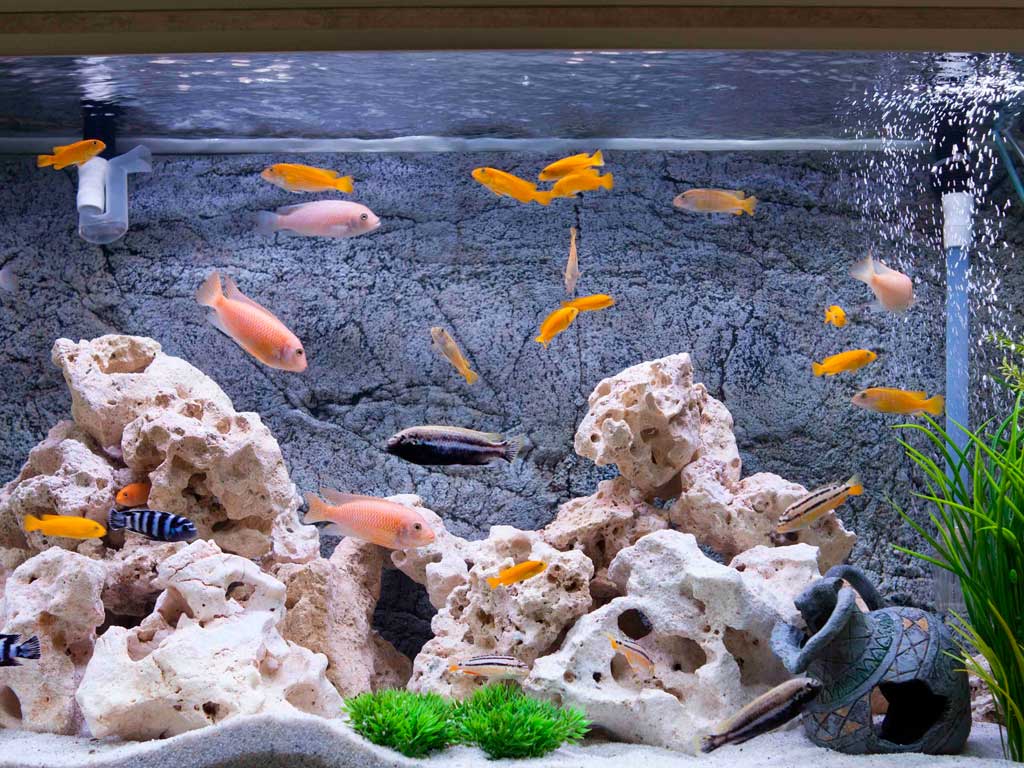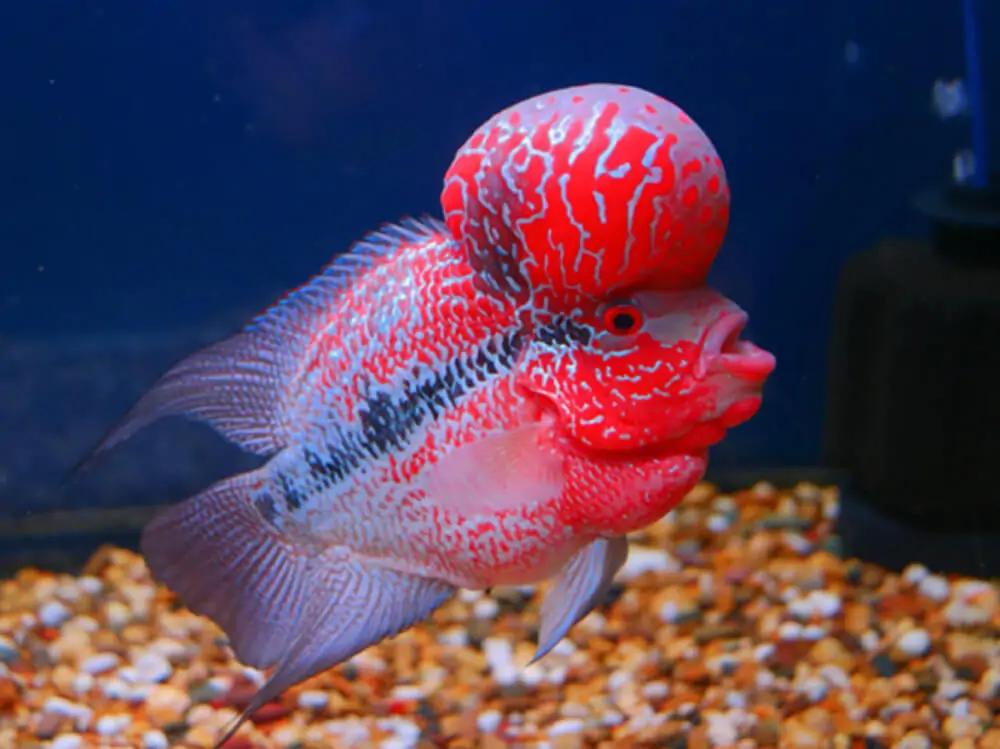Maintaining an aquarium is a task that requires knowledge and dedication. One of the most crucial aspects is water filtration. Unlike natural rivers and lakes, where nutrients and harmful substances disperse easily, in an aquarium the water is a closed system with a high population density.
This means that waste cannot be eliminated naturally, making an efficient filtering system essential to keep the water crystal clear and free of harmful substances. In this guide, we will explore in detail the different types of filter media and how they contribute to maintaining a healthy aquarium.
Importance of Filtering in Aquariums
Filtering in aquariums plays an essential role in the chemical and biological balance of the water. Filter media helps clean the water of fish excretions, food remains and dead plants, which is crucial for maintaining stable water values and, consequently, the health of animals.
Without a proper filtration system, the aquarium would quickly become a toxic environment.
Types of Filter Media
There are three main types of filter media: mechanical, absorbent and biological. Each one has a specific role and it is recommended to use them in a certain order to achieve the highest possible performance from the filter system.
Mechanical Filter Media
Mechanical filter media is the first line of defense in the filtering process. They are made of synthetic fibers that retain dirt particles mechanically. Depending on their permeability, they can be fine or thick, and are responsible for removing particles such as:
- Detritus
- Leftovers
- Pieces of plants
- Floating algae
To maintain its effectiveness, it is essential to regularly clean or replace these media, thus ensuring crystal-clear water free of suspended particles.
Absorbent Filter Media
Absorbent filter media are granules that, depending on the active components used, can bind and remove various harmful substances from water. Its most common functions include:
- Phosphate Removal: High phosphate content promotes the growth of unwanted algae.
- Silicate Elimination: High levels of silicate can favor the appearance of diatom algae.
- Binding of Harmful Substances: Substances such as remains of products for the treatment of diseases, chlorine, pesticides and dyes can be eliminated with activated carbon.
- Black Peat Granules: Ideal for fish that require very soft and slightly acidic water, helping to keep KH and pH values low.
Biological Filter Media
Biological filter media replicates the process of removing harmful substances that occurs in nature. In natural environments, useful bacteria settle in the substrate and plants, carrying out the decomposition of waste. In an aquarium, the surface area of the substrate is usually insufficient, so biological filter media are used that offer a greater surface area for the settlement of these bacteria.
In addition to biological filter media, natural plants play a vital role in this process. From the moment they are introduced into the aquarium, plants begin to form biological colonies on their surfaces and roots. These colonies of microorganisms contribute significantly to the decomposition of waste and the absorption of nutrients, thus improving water quality.
Natural plants not only beautify the aquarium, but also establish an ecological balance, providing a clean and healthy environment for fish.
The chemical process carried out by biological means includes the decomposition of ammonia (NH3), nitrite (NO2) and nitrate (NO3). To be effective, biological filter media must have adequate structure and porosity, allowing optimal settlement of the filter bacteria. Materials such as ceramic or plastic, although used, do not offer the same beneficial porosity as other more specialized mediums.
Using proper filter media is essential to maintaining a healthy aquarium free of contaminants. Each type of filtration—mechanical, absorbent, and biological—plays a crucial role in removing waste and harmful substances. By following a logical order in the implementation of these means, a balanced aquatic environment can be ensured, providing a safe and clean habitat for fish and other aquatic life.
Final Recommendations
- Regular Cleaning: Keep mechanical filter media clean to prevent debris buildup.
- Parameter Monitoring: Regularly monitor levels of phosphate, silicate and other harmful substances to adjust the use of absorbent media.
- Promotion of Natural Biology: Use appropriate biological media and natural plants to encourage beneficial bacterial activity.
With these practices, you will be able to maintain a healthy aquarium, providing your fish with an optimal environment to live and thrive.

